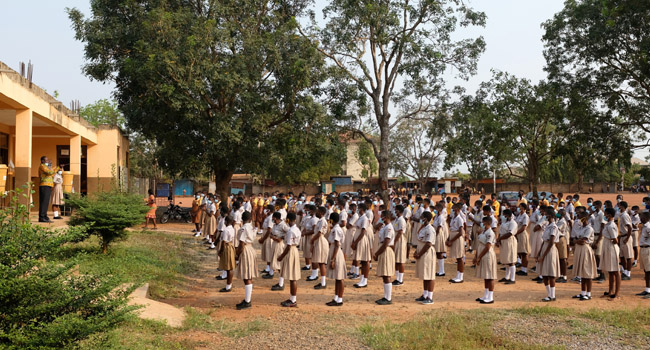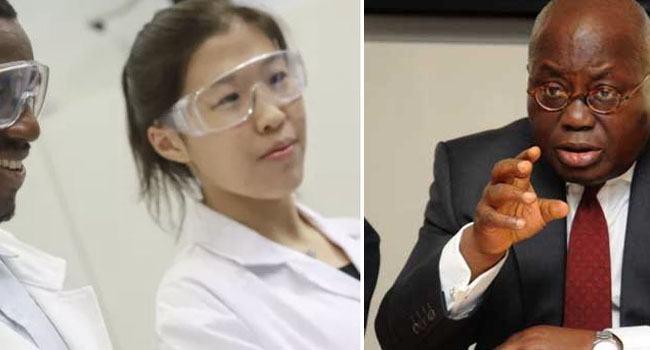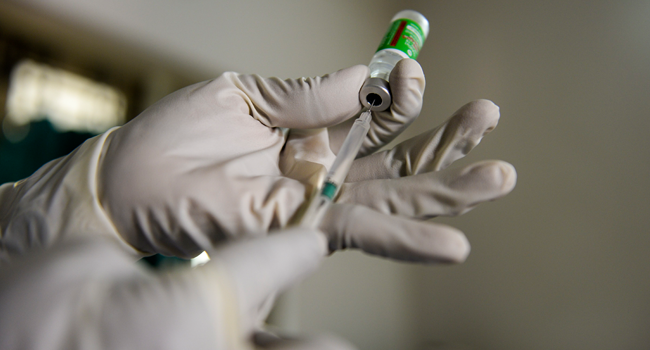
For school teacher Prince Asante, going back to work on Monday was a huge relief after being out of a job for nearly a year, sidelined by the coronavirus pandemic.
“It was really difficult for me to survive,” Asante admitted.
“I became an Uber driver and on weekends I helped my wife with her small business selling clothes to survive. Things were not easy.”
The West African country introduced a lockdown and closed schools in March after the first confirmed COVID-19 case in sub-Saharan Africa was confirmed in neighbouring Nigeria and eventually spread to Ghana.

In the coastal capital Accra, the lockdown was lifted in April but strict measures to help contain the spread of the virus remained in place.
After a 10-month closure, children wearing face masks flocked to the gates of Asante’s Christ Vision School with mini hand-sanitisers attached to their school bags.
“I’m happy to see my friends but I’m scared. We can’t do most of the things we used to do anymore. I doubt school will be fun like it used to be,” said primary school student Anita Gyampo.
READ ALSO: Navalny Urges Russians To ‘Take To The Streets’
Despite mixed feelings, many are glad the days of homeschooling and virtual classes are over — for the time being.

“We had virtual classes through Zoom but it wasn’t effective. Sometimes I waited for over 20 minutes without hearing or seeing anything on the screen,” secondary school student Andrews Lomotey said.
“My parents didn’t always have money to buy data for online class. Thank God I can now learn while taking safety precautions,” said another secondary school student, Emefa Dzakpata.
Schools and universities closed around the world but a report by UNESCO, Unicef and the World Bank published in October found that children’s education in countries like Ghana were more severely affected.
“Schoolchildren in low-and lower-middle income countries were the least likely to access remote learning, the least likely to be monitored on their learning loss, the most likely to have delays to their schools reopening and the most likely to attend schools with inadequate resources to ensure safe operations,” the UN children’s agency said in a statement.
In Ghana, COVID-19 cases are rising and some parents were hesitant about sending their children back to school.
“It’s of great concern to us… why free them now when cases are alarming? I won’t forgive this government if anything happens to my children,” said Priscilla Koomson, a mother of three.
“I wanted to keep them at home for three more weeks to gauge how things go, but I’m giving the government the benefit of the doubt.”
The tally of currently-infected people has nearly doubled in a month, to 1,924, according to Ghana’s Health Service. The overall figure of infections since the start of the pandemic is 58,000, but this is widely believed to be conservative as testing is low.
President Nana Akufo-Addo warned Sunday that Ghana may return to a partial lockdown if the situation continues to deteriorate.
AFP




